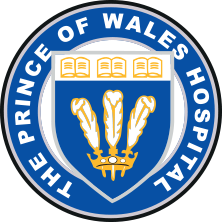Radiation Oncology
How we can help you
Radiation therapy involves the use of high-energy radiation therapy to control or kill tumour cells. It may be used to cure disease, reduce symptoms such as pain, and/or to prevent disease recurrence. Radiation therapy is an effective and important part of the management of a range of cancers, it can also be used for non-cancerous diseases. It may be given on its own or with other forms of treatment such as chemotherapy or surgery.
Most modern radiation therapy techniques focus on accurately targeting cancer cells. Which means they only affect the part of your body that requires treatment while sparing the normal cells. Like having a routine X-ray, radiation therapy is painless.
Types of radiation therapy treatments include;
- Intensity Modulated Radiation Therapy (IMRT)
- Stereotactic Body Radiation Therapy (SBRT)
- Stereotactic Radiosurgery (SRS) for malignant and non-malignant diseases
- Total Body Irradiation (TBI) for bone marrow transplants
- Total Skin Electron Therapy (TSET) for the treatment of cutaneous lymphomas
- Volumetric Modulated Radiation Therapy (VMAT)
- Brachytherapy service includes treatment of gynaecological disease
- Interstitial sites and choroidal melanoma using eye plaques
Your assessment, treatment planning and care are delivered at our clinics and specialist radiation therapy facilities in our NCCC Radiation Oncology Department.
If you have a suspected or confirmed cancer you may be referred by your medical specialist or your local family doctor to use our services. Please request your doctor to send us your referral letter and all relevant test results. Once we have received a completed referral, we will send you a confirmation appointment letter, which will tell you where your appointment is located and what information you should bring with you.
If you need to change or cancel your appointment, please call us on 9382 5111.
- Medical referral if you have it, relevant pathology results
- Current Medicare card or Veteran Affairs card
- Any Health Care Card, Pensioner Concession Card or Commonwealth Seniors Health Care Card.
- Insurer details (for example: workers compensation, public liability or third party).
- Your Private Health Fund Membership card if you are currently insured with a private health fund.
- Recent x-rays or medical images and their reports, if applicable.
- Activities to keep you entertained while waiting (for example: a book, music player with headphones, crosswords). A television and magazines are available in the waiting area.
Please let us know if you need an interpreter. You can contact us telephoning the Translating and Interpreting Service (TIS) on 131 450.
Tell the operator what language you speak and then ask the Interpreter to set up a telephone conversation between you, an Interpreter, and the healthcare professional you want to speak with.
